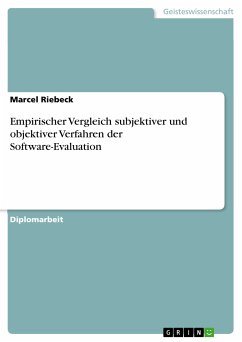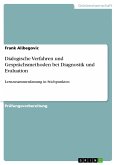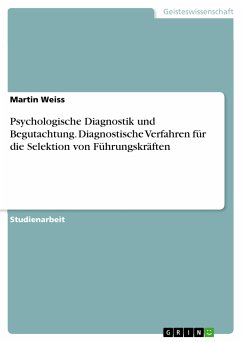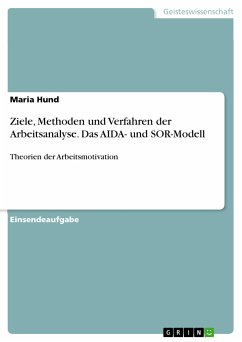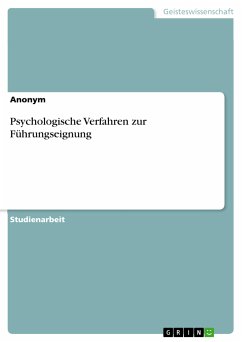Diplomarbeit aus dem Jahr 2004 im Fachbereich Psychologie - Medienpsychologie, Note: gut, Hochschule Zittau/Görlitz; Standort Görlitz (Fraunhofer-Institut für Graphische Datenverarbeitung, Institutsteil Rostock (IGD-R)), Sprache: Deutsch, Abstract: The focus of this diploma thesis is on comparing data from logfiles and questionnaires. Analysed data were collected within a usability test of a website supported by the RealEYES-Framework at the Fraunhofer Institute for Computer Graphics Rostock. The goal of this thesis is to find out if recorded objective performance data possibly indicate why users become more or less satisfied using a software product. Methods for mapping of subjective ratings on objective data, fundamental ergonomic requirements in the software engineering process and the data recording process are described. To analyse the relation between objective and subjective information, results of 18 test subjectives were quantitative-explorative evaluated. The findings of this study point out that recorded objective figures are indicators for efficiency and effectiveness of the working process. However, no statistic significant relations between logged data and user satisfaction were found. In conclusion, these findings indicate that the used objective information by itself are not suitable to identify information about user satisfaction. Further development of the RealEYES-Framework (e.g. detailed diagnostics of objective user data and usability problems within logfiles) has to be done to measure the influence of usability problems on user satisfaction.
Dieser Download kann aus rechtlichen Gründen nur mit Rechnungsadresse in A, B, BG, CY, CZ, D, DK, EW, E, FIN, F, GR, HR, H, IRL, I, LT, L, LR, M, NL, PL, P, R, S, SLO, SK ausgeliefert werden.

